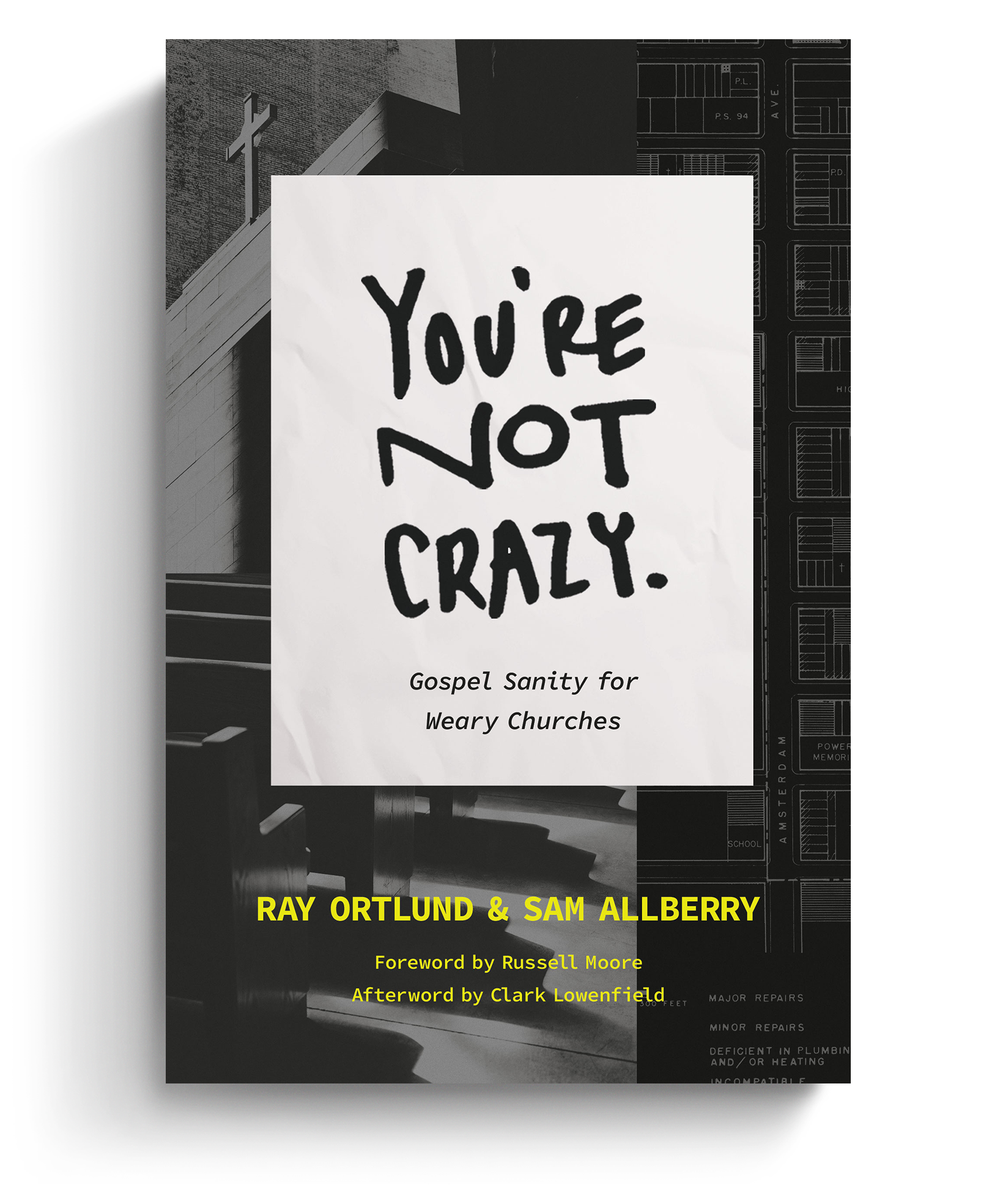The recent legislation approving recreational marijuana use in Colorado and Washington creates new challenges for pastors and churches, not only in those states but across our country. For decades, the criminalization of cannabis allowed pastors to functionally dodge the question of its morality. If it was illegal, it was wrong. Now that marijuana has passed the first bar of legal legitimization, how should churches respond?
I’d suggest we start by changing the questions. In most cases, the most pressing concern is whether marijuana can be used recreationally within a life formed according to Scripture. In attempting to resolve the question, most people turn to marijuana’s effects on the brain, its similarity to alcohol and tobacco, and whether it falls into the class of drugs that Christians should avoid because of their putative “harm” to the body. But by expanding the question’s scope, we will both see what’s actually at stake on this issue and also broaden the audience of our moral proclamation beyond those tempted to use cannabis.
What Is the Purpose of the Body?
The questions beneath the question about marijuana concern whether, when, and for what purposes we should use “drugs” at all. The moral nature of any artificial stimulation or technological intervention into the body’s processes depends upon our understanding of the human body’s nature and purpose, and its meaning within creation. As Luke Bretherton has pointed out, unlike other technologies (such as shoes), drugs induce changes to the person through “becoming part of the body’s chemistry rather than external simulation.” Pain is the natural bodily response (in many cases) to harm and can warn people about their environment and remind them of their vulnerability. It is a response built into the structure of creation for our own good. To use drugs to eliminate every and all experience of physical pain would be to inhibit one of the body’s most important natural responses and would not be conducive to human flourishing.
In that sense, then, it’s important to distinguish between medical uses of drugs that repair or restore the body’s natural functioning and what Bretherton calls “ampliative” uses, which seek to enhance or augment the human experience. Yet this latter use does not happen in a vacuum; the social pressures to pursue particular goods dispose us to seek out some drugs while rejecting others. Drug use is more than a decision; it is a phenomenon. Cialis and other sexual performance “enhancers” emerged in a world where pursuing sexual gratification is almost never questioned. The spirit of the age made using those drugs plausible, which in turn made their development likely.
Framing the question of marijuana in the broader context of drugs and their role within our world, though, would make pastors and churches more attentive to the “respectable drugs” that we depend on without reflection or concern. Cannabis may be used to provide a certain sort of mild euphoria, for relaxation, for amusement, or to alleviate pain. Whether these sorts of goods should be induced with external stimulation, rather than by pursuing them in the context of forming a virtuous character and cultivating a restful, social life, is the pressing question. But when we examine first the question of drug use more generically, the issue comes closer to home for many of us. Should we seek the energy to get through our day from a Monster or Five-Hour Energy (or chronic coffee intake)? Or do we use these drinks to compensate for our vices or sub-biblical commitments to rest and sabbath?
Beyond Yes and No
In many congregations, in fact, such purportedly benign drug use is probably far more prevalent, including—and maybe even especially—by the church staff. It is easy to denounce cannabis use and feel all the satisfactions of righteous indignation. But in many white, suburban, upper-middle class contexts that judgment ensures the problem stays “out there” without allowing us to see how the same mentalities, attitudes, and dispositions about pain and drug use already exist “within here.” Exploring this more foundational question helps ensure judgment begins within the house of God.
I don’t mean to suggest that recreational marijuana use is licit and that caffeine and alcohol are not (or vice versa). Instead, I want to highlight the place of drugs within our lives more broadly. For in providing moral guidance from the pulpit and elsewhere, pastors should go beyond telling people what they can and cannot do. They must go to the heart of the life from which the question arises, in order to discern whether and how it fails to conform with the gospel.
That doesn’t mean, either, that all drugs are created equal or engender equally problematic consequences. Drugs like LSD seem totally corrosive to the integrity of the body and the human person, and to engender devastating dependency. Yet the more interesting cases come closer to us. Consider the interrelationship between caffeine and marijuana. On the one hand, many of us rely on caffeine to fuel our work obsessions. Caffeine abuses reveal an overworked, exhausted culture that refuses to rest. A cup of tea is a wonderful gift. Five cups a day may signify unhealthy dependency.
On the other hand, recreational marijuana use seems can engender something resembling sloth. Proper relaxation is a sort of satisfaction—“a job well done”—not a form of escape. Cannabis use may undercut this rest, or at least short-circuit it.
Sloth and overwork are symptoms of the same diseased understanding of how we labor. Some people will strap themselves to and die on the wheel of performance, while others escape their troubles by medicating themselves. In that sense, drugs are (ab)used to therapeutically fill a gap that is felt without being articulated.
Drug use of various kinds highlights our culture’s fundamental commitments and raises questions about how we interact with those commitments as Christians. Just how far does the therapeutic mentality infiltrate our churches? The fastest-growing segment of drug use seems to be painkillers and prescription medicines. Such “white collar” abuses reveal the same sort of escapist mentality that marijuana may foster in different social contexts.
Expanding the framework for evaluating marijuana implicates us all. But the gospel of Jesus Christ creates churches where we carry one another’s burdens. We admonish one another by observing the ways we have failed in our discipleship because we idolize performance and success. Then we begin the process of repenting for our own sins and ensuring that a gospel-centered judgment about whether to use marijuana will actually sound like good news.
Are You a Frustrated, Weary Pastor?
 Being a pastor is hard. Whether it’s relational difficulties in the congregation, growing opposition toward the church as an institution, or just the struggle to continue in ministry with joy and faithfulness, the pressure on leaders can be truly overwhelming. It’s no surprise pastors are burned out, tempted to give up, or thinking they’re going crazy.
Being a pastor is hard. Whether it’s relational difficulties in the congregation, growing opposition toward the church as an institution, or just the struggle to continue in ministry with joy and faithfulness, the pressure on leaders can be truly overwhelming. It’s no surprise pastors are burned out, tempted to give up, or thinking they’re going crazy.
In ‘You’re Not Crazy: Gospel Sanity for Weary Churches,’ seasoned pastors Ray Ortlund and Sam Allberry help weary leaders renew their love for ministry by equipping them to build a gospel-centered culture into every aspect of their churches.
We’re delighted to offer this ebook to you for FREE today. Click on this link to get instant access to a resource that will help you cultivate a healthier gospel culture in your church and in yourself.

































